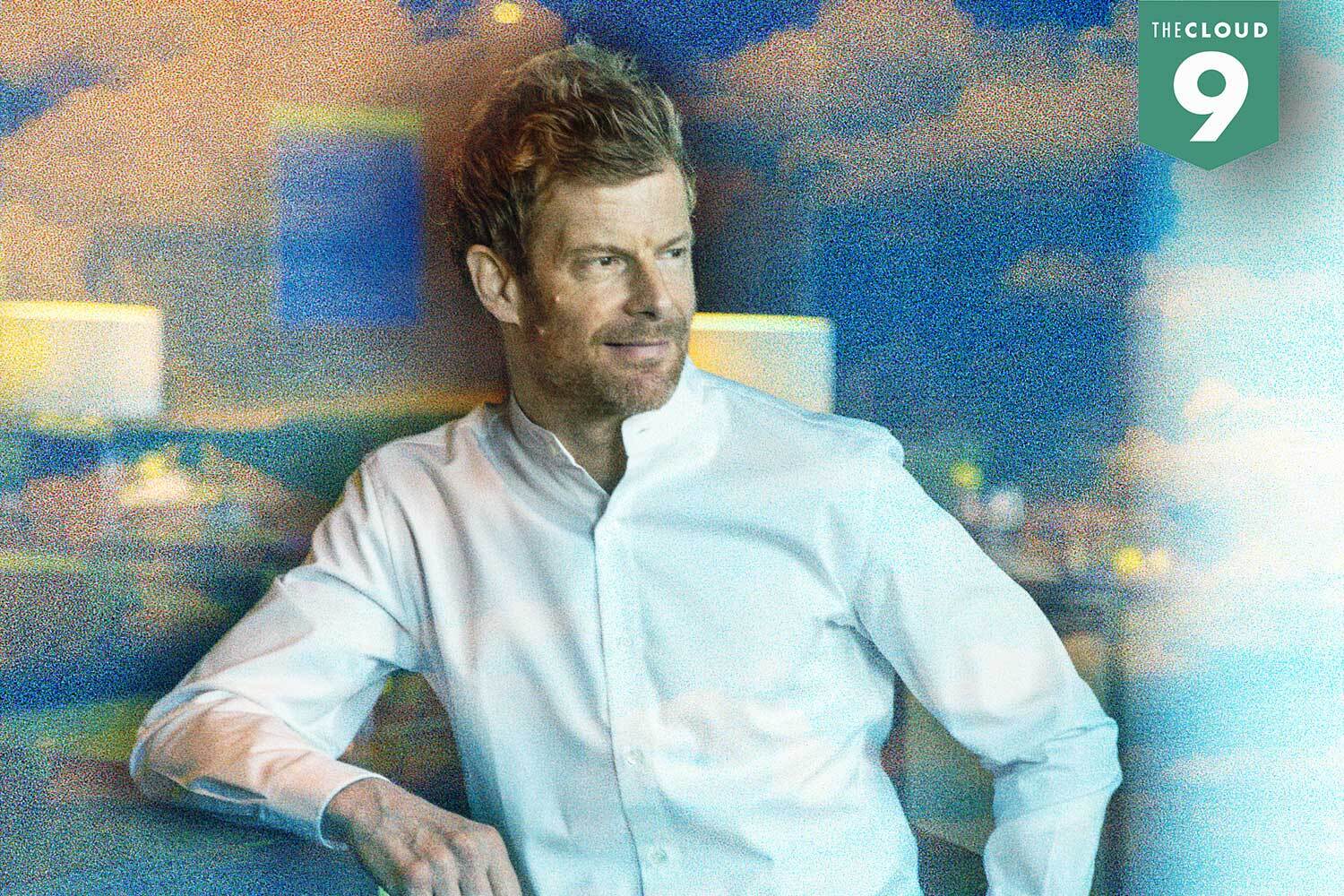Tom Aikens’s 23-seat fine dining restaurant, Muse, recently retained its Michelin Star for the third straight year. It’s yet another feather in the chef’s cap for the 53-year-old, who has helmed preeminent London kitchens since the mid-1990s. His influence now stretches well beyond Belgravia; earlier this summer, we had the pleasure of sampling five courses at his recently-opened Jade Room + Garden Terrace, a Tokyo Tower-facing restaurant at The Tokyo EDITION Toranomon, where delicious sea urchin, grouper and locally-grown Hokkaido asparagus are on offer.
The travails of high-octane, high-performing kitchens are rarely associated with “happiness,” ruby red Michelin plaques notwithstanding. It’s a shouty underworld where mistakes happen and matter. The Guardian once wrote of Aikens: “Few people are less suited than Tom Aikens to wearing their hearts on their sleeves, five times nightly, before absolute strangers.” He’s got a kitchen to get back to, after all.
But beyond his culinary empire of eight restaurants on multiple continents, Aikens has his routines and his simple little joys. Among them: a well-made roast chicken. We spoke to the chef about inspiration, how he starts his day and what in the world he’d be doing if he hadn’t become a chef.
1. What does a good start to the day look like for you?
As soon as I wake up, I do a five-minute stretch session and drink fresh veggie juice. I have breakfast with my two young daughters and then walk them to school most days. Before I head off to my restaurant Muse for the day, I catch up on emails and attend a few video call meetings.
2. What challenge in your work is most likely to sabotage your happiness?
As we run a very tight team at Muse, we suffer as a business when we have cancellations or no shows. It’s an ongoing challenge within the industry. It leads to challenges such as food waste, staffing levels and loss of sales, as we prep a very limited amount to cater for what we have booked that day. Any cancellation impacts us hugely, given that we are a small intimate restaurant of 23 seats.
3. You recently opened The Jade Room in Tokyo. Did you ever expect or intend to have your career take you this far around the world?
Earlier in my career, I wouldn’t have imagined to be present in so many incredible, varied cities. I’m very focused on pursuing other major cities to work in. Tokyo is one of the most exciting cities for any chef because of its heritage and culture in food. Also it has some of the best produce in the world.
How to Be Happy, According to the Best Saxophonist in America
Marcus Strickland talks jazz, aliens and living for the day4. Your Jade Room menu make extensive use of ingredients from Hokkaido. How does that work? Do you meet with local growers?
As the Jade Room is very much connected to The EDITION, produce is ordered through a centralized purchasing office. However, they understand the quality of the produced required for the menu, therefore when we need new produce in season, they’re on-hand to give us advice on products that will be coming in season.
5. Looking back on your career thus far, what’s a moment or memory that always brings you joy?
During the course of 30 years being in the industry, there have been many happy and tough memories, both of which stay with you forever. I’m a travel bug, so I’m thrilled and very lucky to be able to travel with my job, meeting incredible chefs around the world to work with and also be inspired by.
6. What’s a meal that brings you joy? Something you’ve eaten, prepared or both.
A roasted chicken symbolizes everything for me for a family time meal. If you get it right, it’s the best dish on the planet — the sweet smell of the roast chicken in the kitchen is just heaven. It’s a dish that everyone loves, and it always brings joy to those who have not yet experienced a great roast chicken cooked to perfection. It can be shared, it can be eaten cold and my children love it. Every bit of it can be utilized for leftovers in a chicken pie and, of course, a good stock!
7. How do you decompress after a long day?
Once I’m home after a long day in the kitchen at any of my restaurants, I’ve been focusing more on not carrying on with work and emails. I try to give myself time to mentally unwind before I go to sleep. I may simply watch some TV or read.
8. What would you have have done with your life, had you not become a chef?
I consider myself as a bit of a thrill seeker, so I would probably be a professional jockey. My cousin was a professional jockey, winning the Cheltenham Gold cup three times in a row, so I used to spend a lot of time with him on occasions. For fun, he did some mild training with me and then let me loose on the tracks with one of his racehorses, which as you can imagine was insanely fast! I’m surprised I managed to stay on the horse considering the speed, but it was a huge thrill. My adrenaline was sky high for some time after that.
9. Which chefs have you tried to emulate throughout your career?
I have worked with some of the greatest chefs such as Pierre Koffman and Joël Robuchon, who each work(ed) very differently. I’ve learned something from every person I have worked with, and adopted parts of their attitudes and approaches both into my own work and the way I run my own kitchens.
Whether you’re looking to get into shape, or just get out of a funk, The Charge has got you covered. Sign up for our new wellness newsletter today.
